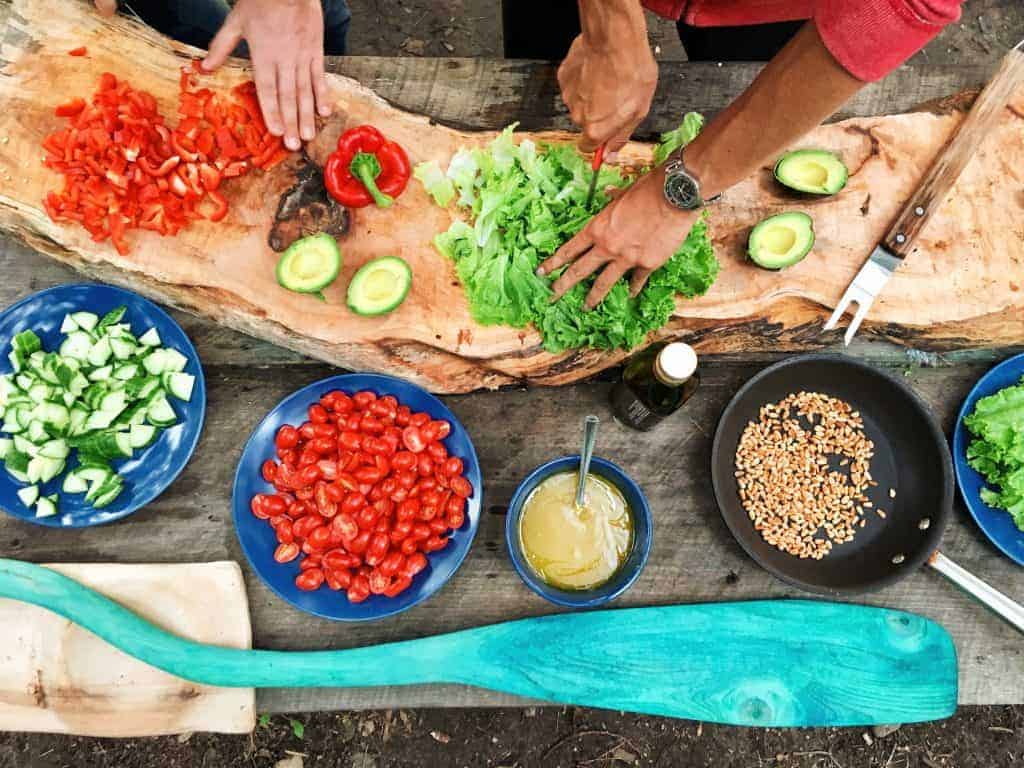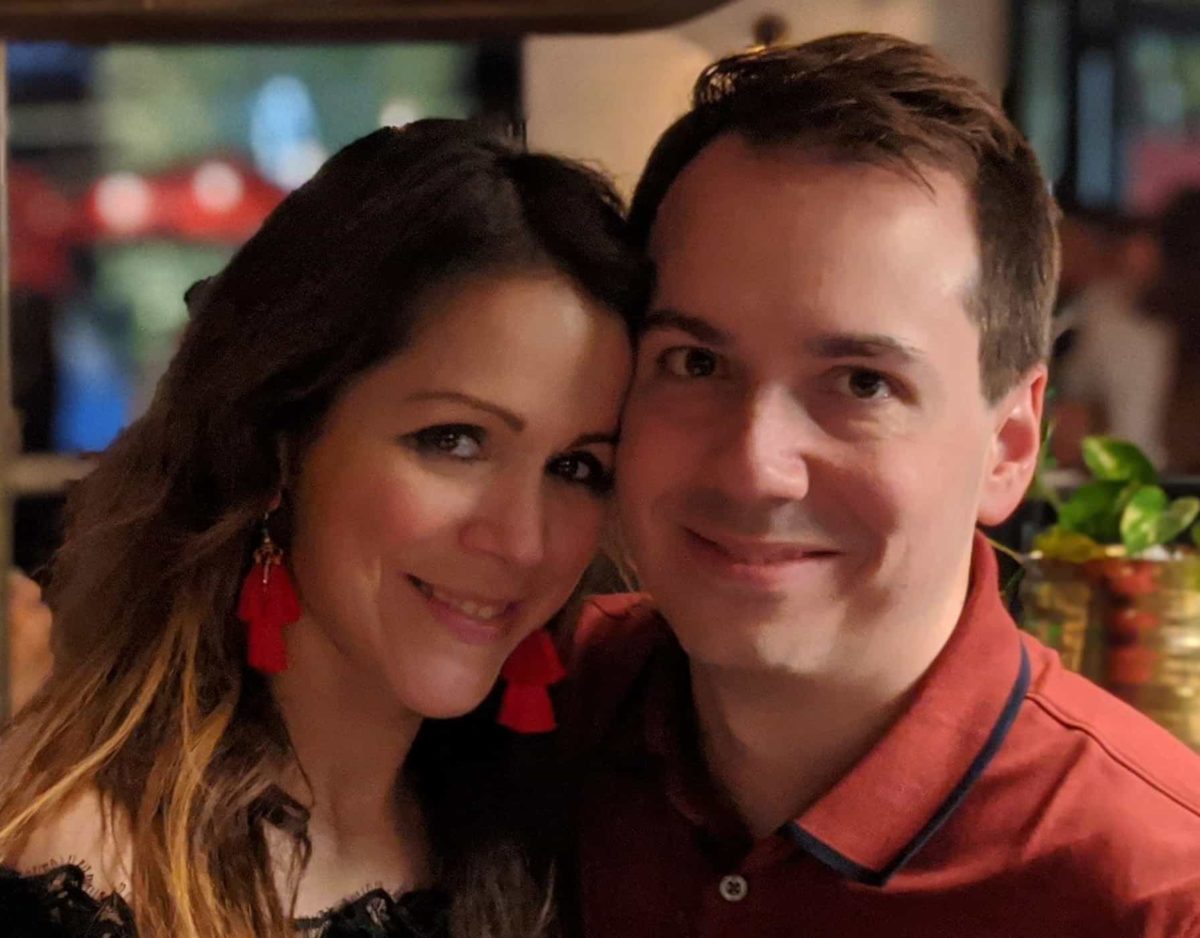What a dream! An achievable dream! I’m talking about financial independence (FI), and optional early retirement (FIRE).
That’s the main topic of Chapter 8 of Your Money or Your Life, the classic personal finance book by Vicki Robin and Joe Dominguez that’s just been updated for 2018. As part of the Rockstar Finance travelling book review on this timeless work, I have the honor and privilege of reviewing said chapter, called “Catching Fire: The Crossover Point”. So let’s dive into it!
Reaching FI
Building on previous chapters, Mrs. Robin and Mr. Dominguez start off by showing us how to track and estimate investment income, and project when it will match (and then surpass) our monthly expenses. Once those two lines intersect, we’ve reached the so-called crossover point, and our first taste of FI.
I really like how the authors lay out a very simple and easy-to-follow formula for determining when you’ve reached FI; if you’ve followed the previous steps in the book, you’ll have a wall chart where you’ve been tracking your income and expenses. With this chapter, you learn to add a new line corresponding to investment income. That is to say, once your employment income exceeds expenses, you can put that money to work by investing it. Then, your investment balance will grow as you keep investing money from your job income, and from the compound interest that your investments themselves will generate. With time, that passive income line will approach the one representing your expenses.
I find that charting this progression is a great idea, in that it provides a ready means of seeing your ever-increasing proximity to FI, and projecting that crossover point. This should be very encouraging in that it makes FIRE real and achievable, instead of a vague dream.
The Different Flames in a FIRE
Another good discussion in Chapter 8 concerns what FIRE actually is, and how it can (and probably should) mean different things to different people. Once you’ve reached FI, you don’t have to “put yourself out to pasture” and withdraw from productive life. Rather, you can live life on your terms. And this is what Chapter 8 encourages, since you can do what makes you happy, including work that you’re passionate about.
For instance, you can change your line of work and learn and practice a new trade, whether or not for money. You can quit paid employment, or freelance several days a week. It’s up to you.
And people are putting this into practice. I was reminded of an article I recently read, about an FI nurse who retired at a traditional age (66). However, after 3 months, she decided to go back to work at the hospital, to a “part-time position she designed for herself”. At any age, this is the kind of choices and leverage that FI affords. Liberated from having to work for a living, you gain the freedom to choose how to spend your time.
In fact, you can take it even further that just a job issue, and find where you want to live and the community you’d like to be a part of. That enables what the authors call natural wealth, which includes the idea of living in a community where you help others and others help you. That way, you can not only be happier, but also have less of a need for money, since you can trade goods and services with others. For instance, if you find a passion for cooking, you can cook for yourself, your family, your neighbors, or even paying clients.
The Importance of Community
I think that this is possible in most any place, including in a crowded city. For example, I grew up in an apartment building where most people were long-term residents. This led to everyone knowing each other – I have fond memories of playing basketball and rollerblading with other kids in the parking lot. I also remember the neighborhood exchanges, such as when I got sick late one night and a doctor that lived in the building agreed to see me right away. Years later, I “paid it forward” by fixing another neighbor’s computer.
So I love that Mrs. Robin and Mr. Dominguez remind us of the benefits of community, and how strong communities not only make life more convenient, but also cheaper. When I received that medical care, my parents did not pay a cent; when I fixed the neighbor’s computer, I didn’t charge him.
All of this builds community and belonging, as the authors wisely say:
[clickToTweet tweet=”Just as dancing is a skill, belonging is a skill you can build through listening, acts of kindness, and simple rituals… (Robin & Dominguez, Your Money or Your Life).” quote=”‘Just as dancing is a skill, belonging is a skill you can build through listening, acts of kindness, and simple rituals…’.”]
Lifelong Students
In this discussion, I really appreciated how the authors encourage lifelong learning, and acquiring new skills after FIRE. As they note, it’s probably easier than ever nowadays, owing to the internet and its wealth of free knowledge. In fact, I experienced this firsthand last week, when I had to fix my bicycle and learned how to do it by watching a YouTube video. It took me less than an hour (including watching the video); to have it fixed professionally would have taken me far longer (just in transporting it to the bike shop), and cost me a pretty penny. So, I think Mrs. Robin and Mr. Dominguez are definitely onto something here.
As they write: “having diverse skills and abilities is one key to resilience-the capacity to thrive no matter what happens in the financial markets. Honing your skills gives you leverage, freedom, and choice”.
How About a Discussion on Power?
In my view, the one thing the authors could add in a future edition is a discussion on power, and how it relates to FIRE (if at all). Allow me to explain.
Sometimes, what happens in politics, from the local to the national level, can directly affect our finances. From laws and zoning restrictions that might end your ability to legally rent out a room to changing tax policy, it’s a fact that political developments can directly affect the financial assumptions underlying your FI. For instance:
- Civil forfeiture
- Insurance claims denials
- Government bond defaults
- Being on the losing end of tax law changes
I think it’s common knowledge that, the more power you have, the easier it is to minimize or eliminate your losses from these kinds of events (or prevent the events from happening altogether). So, I think a discussion on power would enrich the chapter. For instance, how important is power to FI? How can FIREs achieve any necessary power – is it enough to join lobbying groups and associations, or is it essential to do more? It is worth the investment of time and money?
I don’t have all the answers, but I’d certainly love to read Mrs. Robin’s thoughts on it (Mr. Dominguez passed in 1997).
Summing It Up
Overall, Chapter 8 is an excellent guide to the FIRE part of a financial life that follows the authors’ principles and steps. It has a very clear definition of FI, as well as an easy-to-implement way to measure your progress to it. I also really appreciated the discussion on other aspects of FIRE, beyond the strictly mathematical. Living in strong communities and continually developing skills and bonds with others is certain to bring you benefits that go far beyond dollars and cents.
My only suggestion is the addition of a discussion on power, since I’d like to know the extent to which political and social power influences our ability to protect wealth.
That said, I highly recommend Chapter 8.
My Rating: 4.5 out of 5
Next up in the Rockstar Finance travelling book review series: Chapter 9, at The FIIntrovert.




Nice summary good sir!
I really like the growing and learning part of FIRE. It isn’t that all of us don’t like what we are doing at our current jobs, only that we have other passions we’d love to spend more time on.
FIRE enables that, even sometimes leading to mula!
Thanks Chris!
Yup, I think lifelong learning is key, and perhaps more so in FIRE. Even then, I always feel like I could use more time for work and learning (and fun) 🙂
Cheers,
Miguel
I think FI is such a personal thing. There is no right or wrong answer to what you want to do with your life.
Is this part of a series where different bloggers are reviewing different chapters?
Tom
Hey Tom,
I agree. I sometimes think of what I’d do if I won the lottery, and I think I’d still work (though maybe not on Mondays 🙂
But yeah, it’s up to each FIer to decide what they do with their life.
Yes, it’s a series where one blogger reviews each chapter.
Cheers,
Miguel